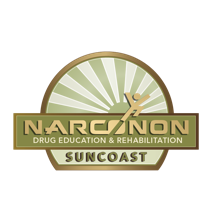If You Are Considering Treatment, What’s the Worst That Could Happen?

When I talk to addicts, families of an addict, or friends of an addict, there is often a lack of urgency to find themselves or the person they love the help that is needed. I’d like to weigh the pros and cons of going to treatment vs. rolling the dice, either by playing the waiting game and hoping the addict will come to their senses or hoping things eventually get better on their own. I went through this, my family went through this, and I have known as well as working with countless others who have found reasons to delay treatment. Confronting addiction is often overwhelming, which is why so many spend far too much time believing it’s something that cannot be overcome or something that is out of their control.
There is an idea that an addict won’t change until they are good and ready, and while that is partially true, the belief that is unfortunately often associated with this mindset is that this change in attitude needs to happen before a person goes to treatment and is still under the influence of addiction. In my experience, most addicts will protect their addiction at all costs. Family members and friends will stand idly by chastising the addict for not following through on making promised changes and wondering why things keep getting worse. The reality is the addict has no direction or drive that isn’t driven by drug abuse. When addiction is calling the shots, chaos will continue to follow the decisions made by an addict. While waiting for an addict to decide he wants help, the likelihood of jail, prison, or death will continue to dramatically increase with each passing day.
What’s the worst that could happen by deciding quickly on treatment? Many people point to addicts who have been in and out of treatment facilities for years without any results that ended with prolonged clean time. I would first argue that there are different approaches to staying clean. There is a lot of misinformation out there that push things such as drug replacement therapy or short-term treatment. Finding the right place to heal and get well is of paramount importance.
Financial costs accumulating from failed rehab attempts are also used, although I would argue that potential legal costs, as well as expenses on drug abuse, will dwarf any costs associated with treatment facilities. That doesn’t even consider the years of lost income from an addict’s inability to hold a job or advance their career in any meaningful way while dealing with addiction. What about the money spent on replacement drugs such as Suboxone? This is a drug that is highly expensive and causes more severe withdrawal symptoms than heroin if discontinued.
Once an individual gets through a good rehab program that works, it is ultimately it is up to the individual to stay clean. On the flip side, what is the best thing that could happen? A person goes treatment, willingly or unwillingly, finds their self-worth again, makes the changes necessary, puts addiction in the rear-view mirror, and goes on to live a healthy, happy, and productive life. When talking about reconnecting a person with their own lives and giving them the best chance possible to free themselves of addiction, it’s an easy decision often made far too difficult. If you or anyone you know is seeking help, please reach out.
Justin P—Narconon Suncoast Graduate


